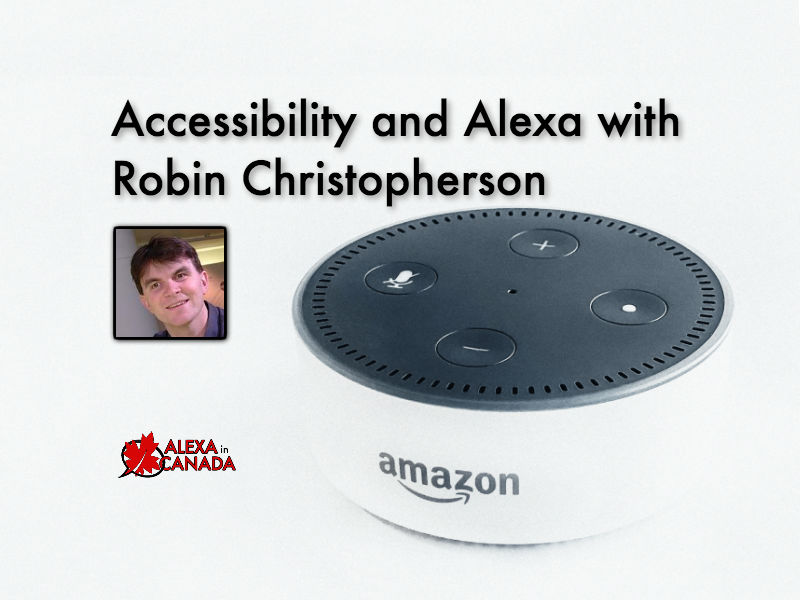In this episode Teri welcomes Robin Christopherson, Head of Digital Inclusion at AbilityNet, to talk about accessibility of voice-first technologies and his experience as a blind person using Amazon Alexa.
Welcome Robin Christopherson!
Robin Christopherson is Head of Digital Inclusion at AbilityNet, the globally-acclaimed accessibility and tech charitable organization in England. AbilityNet is a pan-disability charity organization that promotes the use of technology to empower people with all types of disabilities. Robin himself is blind and he joins us today to speak about his experience with Amazon Alexa and the benefits of voice-first technology for those with disabilities.
Robin is a sought-after speaker, and has won numerous awards for his work in inclusion and accessibility, including the MBE – Member of the Most Excellent Order of the British Empire. He produces the daily podcast, Dot to Dot, where he reviews Alexa skills.
Robin’s Key Points about Technology, Accessibility, and Alexa
- Robin is blind and his visual impairment was gradually progressive from birth. He lost his remaining vision in his late teens and has used technology to help him with his daily activities over the last 20-30 years.
- There is a huge amount of excitement and enthusiasm about voice assistants within the areas of inclusion and accessibility. Voice tech will help people with all types of disabilities, from cognitive, to visual, to hearing, to many others.
- Smart voice speakers are the ultimate evolution in the computer interface. Voice is the most natural version of communication.
- Robin received his first Echo Dot for his birthday approximately 1.5 years ago and he loves it! He uses numerous commands and skills to help him with his daily organization and activities.
- Alexa allows for more accessible environmental control in a mainstream, affordable device. The low cost of entry to using Amazon Alexa is one of the reasons that the adoption rate of these devices has been so high.
- Robin finds that the most useful skills and commands for visually impaired people include calendar functions, scheduling, timers, entertainment skills, and the ability to ask general queries in natural spoken language.
- We are beginning to see a world of increasing ambient computing – where one simply talks to the air around him/herself and there are computers all around that are able to respond in an appropriate and relevant manner.
- One of the greatest benefits of Amazon Alexa, compared to other digital assistants, is the fact that Alexa has been built from the ground up with an emphasis on voice-first technology. On the other hand for example, while Siri currently is activated by voice, it relies heavily on a screen to deliver content.
- While recognizing that some people have concerns around privacy and security, Robin is not particularly anxious about these issues around these devices. He feels that we are living in the age of the ‘wild-west’ of the internet, but that the digital assistants are no different than any other websites or devices currently available. Having said that, he does not necessarily recommend putting a device with a camera in the bedroom!
Dot To Dot
Robin has a daily podcast, Dot to Dot, where he highlights one or more skills each day. The podcast is aimed towards all people (not just those with visual impairment). Robin also occasionally talks about new features that are available to Amazon Alexa users. Make sure to check it out here.
List of resources mentioned in this episode:
- AbilityNet
- Dot to Dot Podcast
- Robin Christopherson on Twitter @USA2DAY – use #DTDPod to join the discussion about the Dot to Dot Podcast
- Teri Fisher on Twitter
- Alexa in Canada on Twitter
- Please leave a review on iTunes












![Celene Osiecka of [24]7 on the Voice in Canada Podcast](https://voiceincanada.ca/wp-content/uploads/2021/10/Celene-Osiecka-of-247-on-the-Voice-in-Canada-Podcast-1.jpg)